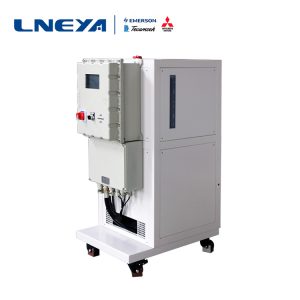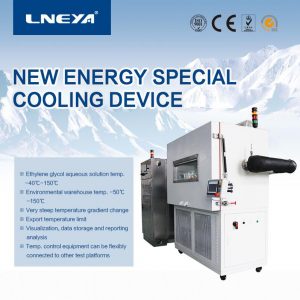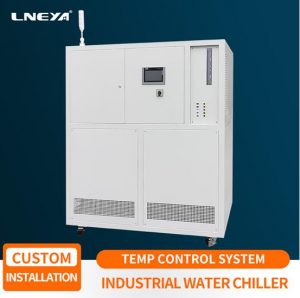화학 및 제약 생산 공정에서 온도 제어가 필요한 반응에는 어떤 것이 있나요?
Precise temperature control plays a crucial role in the reaction process during synthesis/crystallization in the production of chemical and pharmaceutical products. In the field of fine chemicals, many chemical reaction processes and crystallization processes are carried out in a low temperature environment. When the reaction is carried out in a low temperature environment, the amount of impurities produced is obviously reduced, and the purity of the product is increased, so that the reacted product has a high selectivity. Compared with the traditional process technology, a reasonable selection of the working temperature range can improve product quality and synthesis quality, improve production efficiency and reduce production costs. The premise of realizing all this is the control of the dynamic temperature in the reaction process. In the crystallization process of pure product, in order to obtain higher product quality, it is necessary to strictly follow the specified cooling rate.
Decarboxylation is a chemical reaction that removes a carboxyl group and releases carbon dioxide (CO2) and replaces it with hydrogen atoms. The term refers to the states of reactants and products. Decarboxylation is one of the oldest known organic reactions because it usually requires simple pyrolysis and distillation of volatile products from the reactor. Heating is required because the reaction is less favorable at low temperatures. Yield is highly sensitive to conditions. For example, the temperature required for the polar activated decarboxylation reaction method is as high as 140 °C.
Winterization is one of the methods of crystallization separation. It is to stir the oil slowly, control the cooling speed, and cool it to about 4~6 ℃. The solid fat is formed into larger crystals and separated out. Winterized oil is characterized by passing the freezing test, that is, it is not cloudy after 5.5 hours at 0 °C. Another example is that the whole process of enzyme extraction is kept at low temperature because enzymes are proteins. Proteins are denatured at high temperatures, thereby losing their activity. The temperature is too low, which is not conducive to the extraction operation. So careful temperature management in the processing plant not only ensures high extraction rates, but also efficient recovery of the solvent used. It is conceivable that temperature control plays a decisive role in the extraction process.
Our LNEYA temperature control system equipment can be used to accurately control temperature in small laboratory rotary evaporators to large factory pilot systems. Temperature control range -120℃~350℃, efficient production stability and repeatable results, refrigeration power from 0.5~1200kW. Superior performance, high precision plus or minus 0.1 ℃, high intelligent temperature control settings, 7-inch 10-inch color TFT touch screen graphic display.
관련 권장 사항
-
Application of Chiller
1168With the rapid development of modern industrial technology, in order to improve production efficiency, improve product quality and reduce production costs, the requirement of temperature control in production process is becoming higher and higher....
세부 정보 보기 -
반도체 냉장 온도 제어 테이블 쿨러 작동 지침
1217반도체 냉동 온도 제어 스테이션의 변압기 냉각 시스템 제어 시스템의 전원 공급 장치 스위칭은 수입 된 이중 전원 자동 스위칭 장치를 사용합니다. 주요 기능은 자동 스위칭 베팅입니다 ...
세부 정보 보기 -
자동차 냉각수 주기 관리의 중요성
1137Even if the overall running quality of the car cooling water circulation machine is high, if there is no maintenance and maintenance in the specified time, the car cooling water circulation machine may have different degrees of failure. Especially...
세부 정보 보기 -
산업용 냉각기 시스템 선택 방법
1155산업용 냉각기 시스템을 구매하고 싶으신가요? 신뢰할 수 있는 산업용 워터 칠러 시스템을 구매하고 싶으신가요? 고품질 산업용 냉각기 시스템을 구입하고 싶으십니까? 구매 방법?1. 공정 요구 사항 장비에 관계없이 LNEYA는 사용자에게 위트 ...
세부 정보 보기
 LNEYA 산업용 냉각기 제조업체 공급 업체
LNEYA 산업용 냉각기 제조업체 공급 업체













